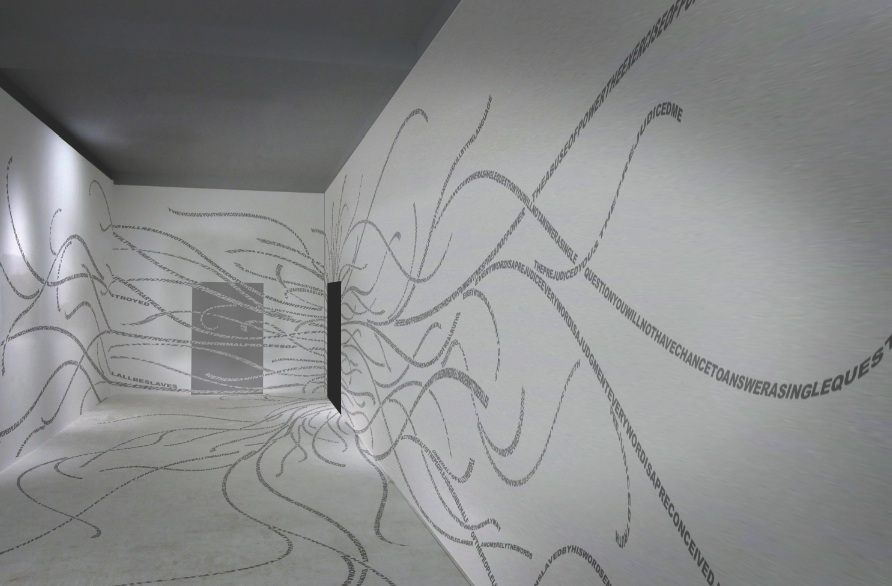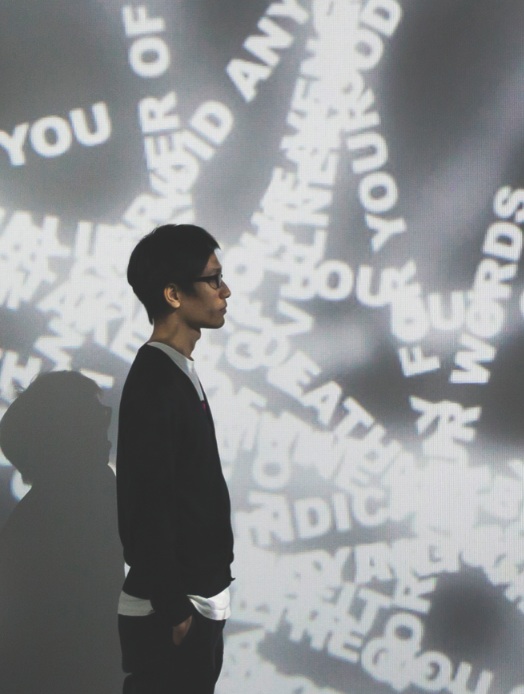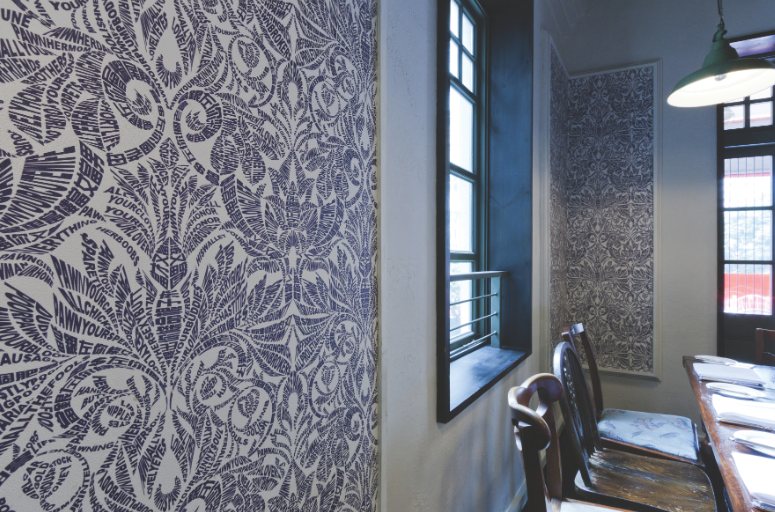Tackling the subject of judgment in his new show at Pearl Lam Galleries, Tsang Kin-wah’s art continues to challenge and disturb

Viewed from a distance, the works and installations of Tsang Kin-wah are deceptively sweet and innocent. Some wrap around rooms like 19th-century floral wallpaper, recalling a stately English manor decorated in the style of Victorian designer William Morris. Others resemble snakes slithering across an ordinary gallery wall, like seaweed caught in a wave. However, on closer inspection the works reveal a glorious riot of words in all sizes and shapes, with some in English and others in Chinese. The words twist and whirl, drawing the viewer in close, causing them to tilt their heads at odd angles and even read upside down. It can be a disorienting experience in more ways than one.
Find out why Kinney Chan, the award-winning designer thinks purity and identity are important in designs here.
And the words aren’t always nice. Some comprise joltingly foul language, interspersing swear words or actual curses, while others reflect the space around them, such as the wallpaper installation at The Pawn in Wan Chai, where the intricate stencils reflect a pub state-of-mind – eating and drinking with merriment, and pursuing the opposite sex. At first the juxtaposition is humorous. But the Hong Kong-born artist’s pieces give way to deeper thought about words and their overall function in our lives.

Tsang is a favourite at biennales and art festivals around the globe, and has been commissioned by art lovers in numerous countries. An artist, poet, philosopher and above all, a theologian, Tsang wrestles with weighty questions in his work: Does a higher power exist? Why do people use profanity? Why are so many swear words sexual in nature, or relating to human waste?
Tsang muses, “Parents stop young people from using swear words when they are young, but why? People really do use these words all the time, in reality. It’s confusing to the children.”
Enrolled at a Christian school from a young age, Tsang says he used to believe what he was being taught. But he began to question these teachings as he observed the un-Christian behaviour of his classmates and teachers. When he went to London to further his studies, his experience with racist attitudes provoked further anger, frustration and despair. During this period, Tsang started to read the works of Friedrich Nietzsche, who famously proclaimed, “God is dead.” This led Tsang to embark on a mental journey that he’s still on, as he continues to ruminate on the meaning of life, truth and beauty.

Tsang is keenly aware that each individual interprets reality though personal filters. “Nihilist philosophy shouldn’t have had such a great impact on me, but I’m stubborn. Although I now find some of the ideas too extreme, Nietzsche followed the structure of the Book of Revelation in his book Ecce Homo, so for me, it’s an ongoing existential battle about the meaning of life.” He adds, “Ecce homo (‘behold the man’) is the phrase from the Bible used by Pontius Pilate when presenting Jesus to the public before crucifixion.”
Pearl Lam Galleries’ exhibition of Tsang’s work, the second exhibition at the new Hong Kong space in the Pedder Building, runs until the end of August. Tsang has rearranged the gallery into several unique spaces. Featuring a body of new artworks by the artist, Ecce Homo Trilogy I includes a large-scale text-based installation, a series of video projections, and text paintings on aluminium plates.
The gallery’s founder, Pearl Lam, says, “Coming from Hong Kong, I’m so proud to be showing Tsang Kin-wah. This is the first time the gallery is exhibiting a local artist. Hong Kong is being transformed into a major contemporary art centre, attracting both an international and local audience. Tsang will be creating a specially commissioned project for our space that has universal relevance, and I believe will have a deep impact on all visitors to the exhibition.”
David Chan, the curator of Tsang’s Ecce Homo Trilogy I, says, “Tsang has taken a long-term interest in the study of Nietzsche and religion. His oeuvre investigates the influences religion has on ideology, and how it affects our existence and human emotions. By witnessing the unfolding of a traumatic scenario, Tsang intends to ‘behold the audience’ by asking the beholders how they make value judgements and assess moral consequences.”
Sotheby's London to exhibit graduate work from the China Central Academy of Fine Arts in November for the first time. Click here to find out more.
